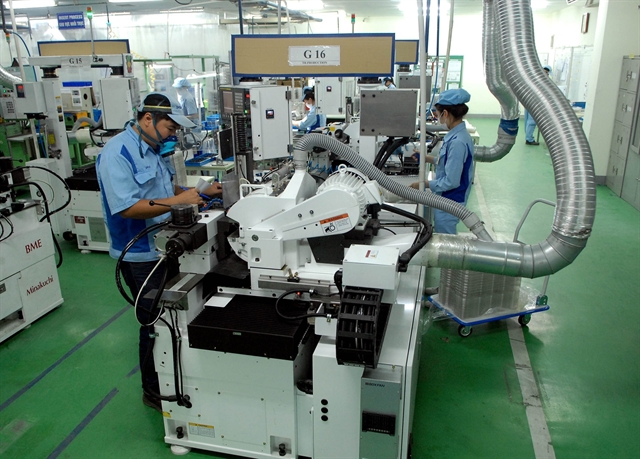This was an encouraging figure compared to the same month of last year when foreign investment registered in Việt Nam saw a yearly decline of 20 per cent, the FIA said.

Việt Nam lured over US$2.36 billion worth of foreign investment in January, a rise of 40.2 per cent year-on-year, according to the Foreign Investment Agency (FIA) under the Ministry of Planning and Investment.
This was an encouraging figure compared to the same month of last year when foreign investment registered in Việt Nam saw a yearly decline of 20 per cent, the FIA said.
Of the sum, over $2 billion was invested in 190 new projects, a year-on-year surge of 70 per cent in level of capital and 24.2 per cent in project number, it said, outlining a large-scale urban area worth above $662 million as a typical project licensed in the month.
At the same time, $235.4 million was injected into 75 underway projects, down 23 per cent in capital and 16 per cent in number of projects year-on-year.
Meanwhile, investment through capital contribution and share purchase deals hit over $116.5 million, 33 per cent lower than the same month last year.
Following an upward trend of fresh capital, foreign investment disbursement also witnessed a yearly rise of 10 per cent to $1.48 billion, the FIA noted.
During the first month of this year, 39 countries and territories invested in Việt Nam, led by Singapore with over $1.4 billion, accounting for 59.5 per cent of total investment inflows, a rise of 73 per cent year on year. Japan ranked second with nearly $297 million, making up 12.6 per cent of the total or seven times higher than the same month last year.
Other sources of Việt Nam's foreign investment included Samoa, mainland China, and Hong Kong.
The agency said that China ranked first in terms of the number of new projects, totalling nearly 19 per cent, while South Korea took the lead in the quantity of capital-added projects and investment through capital contribution and share purchase deals, making up 26.7 per cent and 25.3 per cent, respectively.
Among 35 localities receiving foreign investment in January, the capital city came first with $867 million or 36.7 per cent of the total. The southern province of Bà Rịa-Vũng Tàu ranked second with $282 million or 11.9 per cent, followed by two northern provinces of Bắc Giang and Bắc Ninh, and southern Đồng Nai province.
As of January 1, 2024, the country was home to 39,377 valid foreign-invested projects with a total registered capital of nearly $471.9 billion. Nearly 63.3 per cent of the sum ($298.66 billion) was disbursed, according to the agency.
Deputy Minister of Planning and Investment Trần Quốc Phương said at a recent meeting that the position and role of Việt Nam in the global FDI flows had continued to improve.
Việt Nam had strongly promoted innovation, digital economy, green growth, circular economy and new economic sectors such as chip manufacturing, semiconductors, high-tech agriculture and mining, as well as high-quality human resources training to better seize opportunities from major countries’ strategic competition, global foreign investment flow shifting, free trade agreements and partnerships with other countries.
However, Phương said that Việt Nam’s foreign investment in the new situation still faced shortcomings in terms of institutions, policies, investment quality and efficiency.
He added that the country was a bright spot in foreign investment attraction in the world. However, the link between the foreign-invested sector and domestic enterprises remained weak, which led to slow technology transfer and the country's low position in the global value chains. — VNS





